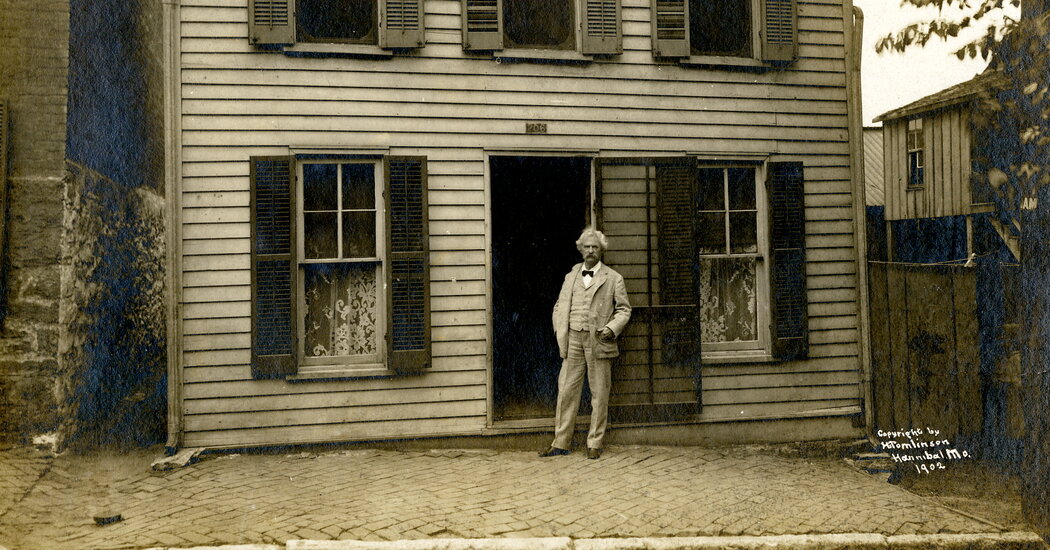Twain had a striking look from the time he was young. In early photographs, he can resemble Billy the Kid, then Joe Walsh, then early Jimmy Buffett, then Kurt Vonnegut before emerging as the crinkly, shambolic, mustachioed, bushy-browed, white-linen-suit-wearing sage of his later years. There was something about his eyes — an intensity, a shrewdness. One observer commented that they were “so eagle-like that a second lid would not have surprised me.”
Women found Twain appealing — he seemed to stride out of a billiards-room fantasy — but he lacked confidence with them. “He was a wild man in every respect except sex,” Chernow writes. His wife, known as Livy, was the sheltered daughter of a coal baron. She didn’t have a well-developed sense of humor, but she steadied Twain. She was a strong post to lean against, and theirs was a great love. She worked to civilize him, not always effectively. They evolved a system of codes, so that she could inform him in real time when he was being a bore at a dinner party. She became her husband’s first reader and, controversially, bowdlerized a good deal of his prose, excising jokes and what she saw as vulgarities (“breech-clout,” “stench” and “retching” included).
The Twain’s family’s most idyllic years were spent in Hartford, Conn., where they lived in a mansion of their own design that some thought resembled a gingerbread house, a folly. The Twains traveled like plutocrats, in private railroad cars, before financial miscues — notably Twain’s deep investments in a novel typesetting machine that flopped — drove them to Europe, where they could live more cheaply, for nearly a decade.
Chernow’s book traces what William Dean Howells called Twain’s desouthernization. He shed many of the prejudices of his youth and became a stalwart northern liberal — one of the most enlightened men of his time on matters of race, religion, colonialism, suffrage, antisemitism and monarchy. Still, Chernow misjudges and overplays some of this material, arguing, for example, that Twain’s impassioned stance (he took a lot of impassioned stances) against America’s imperialist adventures in the Philippines is “no less a part of his legacy than his creation of Tom and Becky, Jim and Huck.” It’s a sentence that draws a line under some of this book’s problems.
